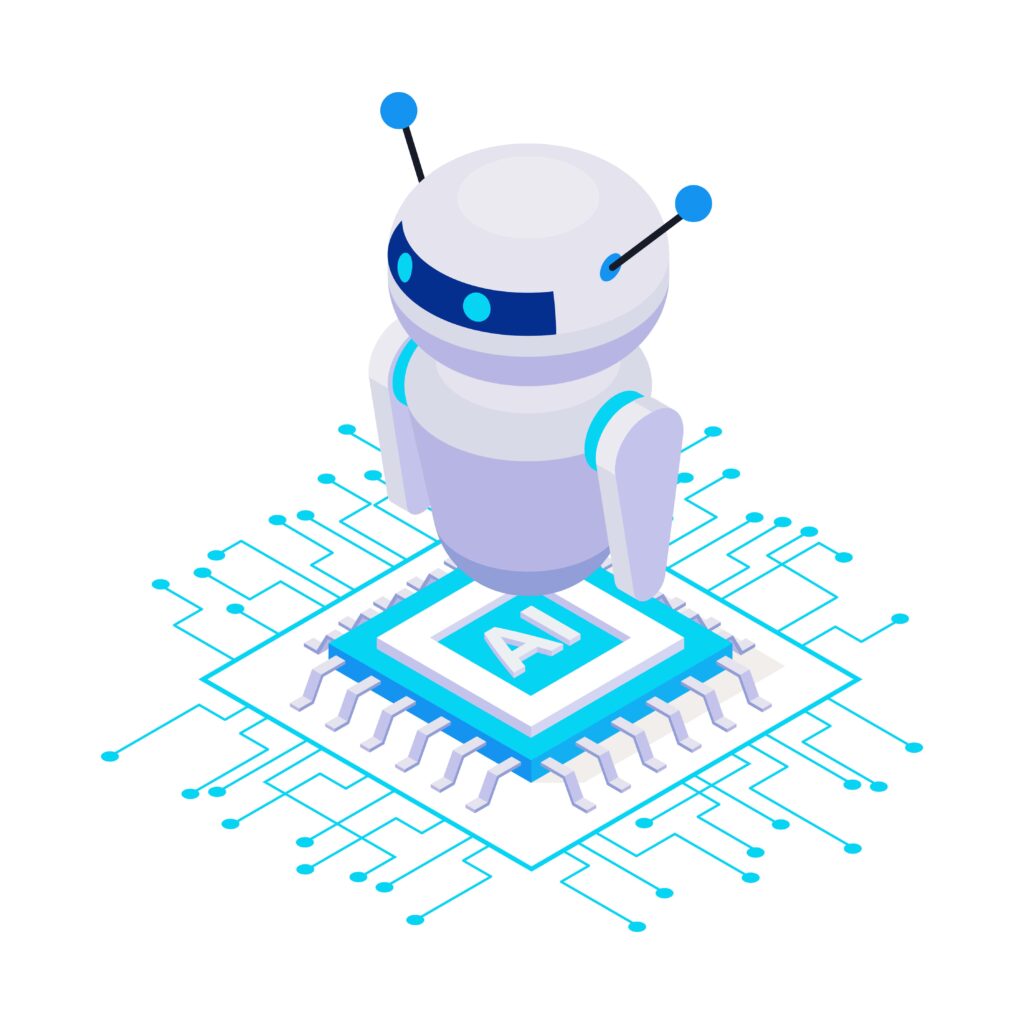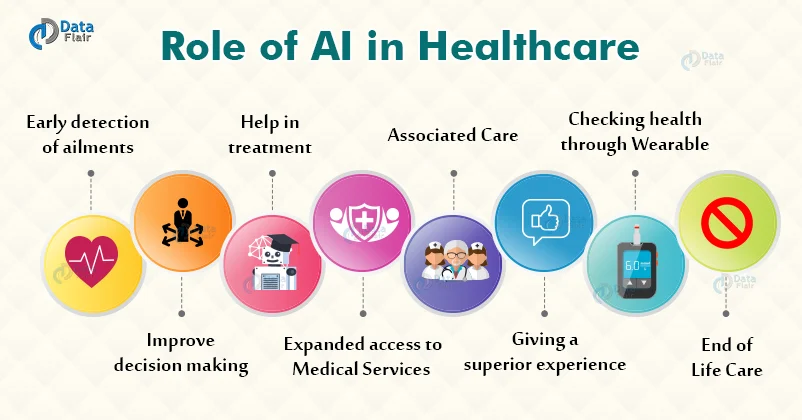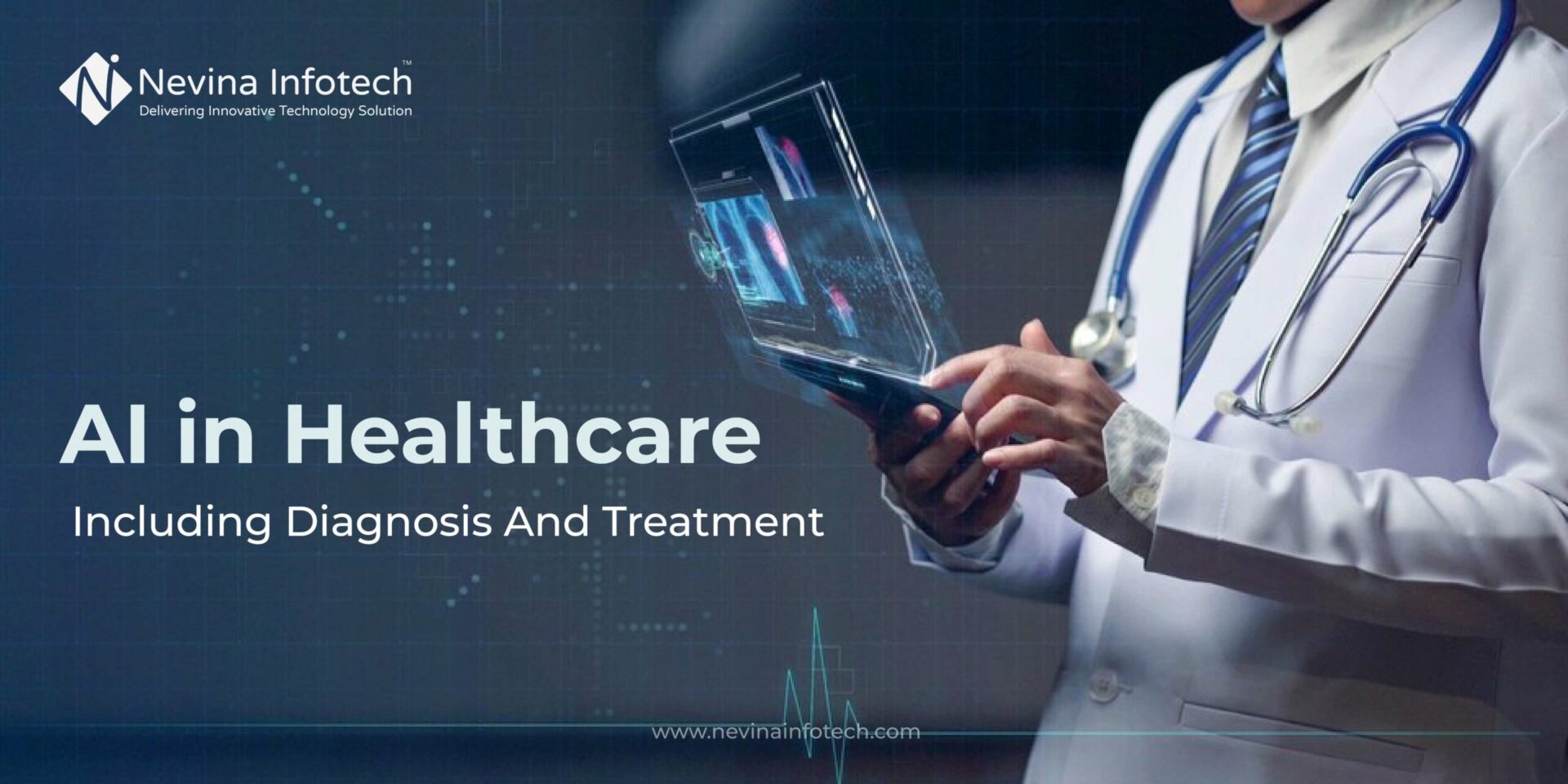In the technology-driven era, every sector is adopting AI and taking advantage for better development and growth. Healthcare is also one of the sectors that are acquiring artificial intelligence for providing better treatment to patients. Integration of AI in healthcare is especially facilitating medical diagnoses and treatment decisions.
By 2026, utilizing AI in healthcare could save the US healthcare industry $150 billion annually. According to Statista, the worldwide AI in Healthcare industry would be worth close to 188 billion US dollars by 2030, growing at a rate of 37% CAGR between 2022 and 2030.
Diagnostics, patient monitoring, drug development, personalized medicine, treatment protocol development, and care are the practices that are leveraging AI integration for improvement in results. Artificial intelligence in healthcare is different from traditional technologies used in medical treatment due to its capability to collect massive and more diverse data, process it and deliver a well-structured product to the user.
Here are the benefits and challenges of artificial intelligence in healthcare to help you understand the importance of AI technology for the present and future growth of your healthcare firm. If you are owning a healthcare organization, willing to integrate AI you can join hands with a reputed artificial intelligence development company and stand out in this competitive market to achieve success and growth.
Let’s start with the definitions of Artificial intelligence and AI in healthcare.
What is Artificial Intelligence?

Artificial Intelligence is the ability of computers to think, learn, and make decisions or perform actions like that of humans. It can perform tasks like producing content, communicating with users, identifying patterns, or helping in solving problems. It is used in almost every sector including healthcare for simplifying tasks and eliminating errors.
What is AI in Healthcare?
The application of AI in healthcare is using computers to examine and respond to medical data, frequently to forecast a specific outcome. The application of ML and other behavioral fields of medical diagnostics is a potential use of AI in healthcare.
AI can assist medical professionals in providing diagnoses and treatment plans that are more precise by using patients’ records and other information. AI can also enhance patient preventative care suggestions by analyzing massive data to create proactively and forecast healthcare.
Artificial intelligence in healthcare makes the job easier for doctors and medical professionals by completing it in less time and cost. It is not just to gather data but is now evolving to help in several ways like AI robots that can assist in surgeries, automation of administrative tasks, finding novel connections between genetic codes, personalized treatment and so much more.
Benefits of Artificial Intelligence in Healthcare (Including Medical Diagnoses and Treatment)
These are the major benefits of acquiring AI in medical diagnoses and treatment decisions in healthcare:
Improved accuracy:
Large volumes of data may be analyzed by AI-powered diagnostic tools, which can also spot trends that may be hard to recognize by humans. This could result in more accurate diagnoses and better-informed treatment choices.
Earlier detection:
Medical images and other data types can contain patterns that AI algorithms can use to identify specific disorders. Earlier diagnosis and treatment can assist in identifying patients who are more likely to acquire serious diseases.
Enhanced efficiency:
Large amounts of data can be rapidly analyzed by AI-powered diagnostic systems, which may give clinicians recommendations for a proper diagnosis and course of action. This may facilitate diagnosis more quickly and lead to better patient outcomes.
Reduced Costs:
AI-powered diagnostic systems can aid in lowering healthcare expenses by increasing the accuracy of diagnoses and minimizing the need for pointless tests and treatments.
Assistance from Technology for Health Professionals:
AI-driven diagnostic technologies can help doctors make more accurate decisions by giving them access to additional data and analysis that they could not previously have.
More Personalized Treatment:
Diagnosis and treatments can be recommended specifically for a patient based on an analysis of their health record and other data via AI-powered diagnostic tools. As a result, patients may receive the best care possible for their particular disease.
What is the Role of AI in Healthcare

The role of Artificial intelligence in healthcare is vast and important as it is utilized in providing effective and accurate innovations that will enable healthcare providers in taking care of patients, and diagnose & cure diseases they are suffering from.
As they have the chance to comprehend training data, AI algorithms improve system accuracy. This further enables people to get previously inaccessible insights into therapeutic fluctuations, medical procedure diagnostics, and patient outcomes.
There are several examples of AI in healthcare like accurate cancer diagnoses, Early diagnosis of fatal blood diseases, chatbots, virtual health assistants, treatment of rare diseases, Targeted treatment, management of medical records, robotic surgeries, and so much more.
The Incredible Benefits of Artificial Intelligence
Challenges for Artificial Intelligence in Healthcare
Though there is a wide range of impressive benefits of AI there are some challenges in its way. But you can overcome these challenges with the help of robust artificial intelligence development solutions. Here is the list of challenges for artificial intelligence in healthcare:
Lack of quality medical data:
The main issue is that the AI tools were trained on inaccurate data of low quality, which needed to adequately reflect their basic real-life process. The training data must be tested and verified to ensure that it is representative, and the model must generalize successfully without underfitting or overfitting compared to the initial data set.
Privacy issues:
Regarding the healthcare sector, privacy is a significant problem. Some regulations like HIPAA or GDPR protect extremely confidential personally identifiable information (PII) found in patient data, such as medical records, personal details, and payment details. The use of AI in healthcare has been slowed by the vast amount of data that the majority of AI models demand as well as business issues about data leaks.
AI in Business: Applications, Tools, and Benefits of Artificial Intelligence
Patient reluctance:
People are reluctant to adopt new ideas and are more accepting of the tried-and-true, particularly when it comes to healthcare. People may hesitate when new or well-known technology is given to them. The implementation of AI in healthcare is also greatly hampered by patient resistance.
Future of AI in Healthcare
The future of AI in healthcare holds immense promise, especially when it comes to making diagnoses and treatment choices for patients. Innovative technologies being developed by artificial intelligence engineers and developers have the potential to modify the way healthcare is provided completely.
Advanced diagnostic tools can examine a sizable quantity of patients data including medical records, lab results, and scans, to find trends and recognize potential treatments by utilizing machine learning algorithms. This procedure provides quicker and more precise diagnosis, which results in prompt interventions and better patient outcomes.
AI-driven software is now able to help medical professionals in selecting appropriate treatments. AI algorithms can produce individualized therapy suggestions by considering a patient’s medical history, genetic data, and the most recent research findings. These suggestions can help doctors in improving treatment planning, decrease mistakes, and raise successful treatment outcome levels. As AI continues to evolve, the future of healthcare holds the promise of more precise diagnoses and treatment decisions, ultimately improving patient care and saving lives.
Mobile Application Security
Conclusion
In a nutshell, the future of healthcare will probably be revolutionized by AI development software for diagnostics and treatment choices. Diagnoses may be made more accurately and treatment choices can be made more successfully when using AI-powered diagnostic tools, which can scan massive volumes of data and uncover patterns that may be challenging for humans to see. Early detection and treatment of some disorders are possible because of the technology.
You can integrate AI into your healthcare organization by approaching a well-known AI development company like Nevina Infotech. We provide you with experienced and talented developers and robust and quality solutions at cost-effective rates.
Frequently Asked Questions
What do you understand about AI in diagnosis and treatment applications?
A number of studies have demonstrated that high-level auxiliary diagnosis systems powered by AI may considerably increase the readability of medical images and support physicians in making more precise diagnoses and therapeutic decisions.
Can artificial intelligence diagnose severe diseases?
AI-based algorithms are useful for locating underdiagnosed or undertreated individuals, unencoded diseases, and unusual diseases. Hence, AI illness diagnosis models offer several opportunities for patient diagnosis at an early stage.
How does AI solve problems in healthcare?
Massive amounts of data from radiography, Electronic Health Records, CT scans, and MRIs can be examined with the help of AI as it has the capability to compare data of all the patients, search patterns and identify associations. Hence, AI in healthcare can solve problems through early symptom predictions and diagnoses.
Read Also:-
- AI In Real Estate Access Control Systems: Benefits And Applications
- Top App Ideas For Startups To Launch
- On-Demand App Ideas For Startup
- Top Artificial Intelligence Project Ideas For Your Next Big Innovation



